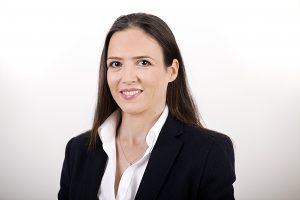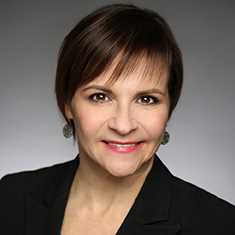 This year, we’ve interviewed impact leaders, change makers and women who are shaking up senior leadership and creating new roles. Once again, it’s our honor to amplify the voices of the women who are becoming the change they want to see – whether that’s recalibrating leadership approaches to shift the paradigm, birthing their own vision tangibly into the world, or elevating the voices that remain underrepresented.
This year, we’ve interviewed impact leaders, change makers and women who are shaking up senior leadership and creating new roles. Once again, it’s our honor to amplify the voices of the women who are becoming the change they want to see – whether that’s recalibrating leadership approaches to shift the paradigm, birthing their own vision tangibly into the world, or elevating the voices that remain underrepresented.
Looking across our leader profiles in 2023, we share words of wisdom and inspiration from each woman we’ve talked to this year (look out for Part 2 next week). Thank you for the gift of your energy, time and insight!
“Get in there early with a contribution to the discussion. Other people feel relieved and appreciate it when somebody says something first and are likely to even build on it. And I learned that contributing early liberates you to relax and enjoy the discussion, because you’re not beating yourself up about not having said anything yet. You may find you are building up to something even bigger to say, but at least you feel good because you’ve contributed.” – Ruth Harper: SVP, Chief Communications & Sustainability Officer, ManpowerGroup
“We’re all drops in the ocean, but together we can move the moon. Small things matter. Because if we all do one small act, together, collectively and as a community, we can move mountains, and that’s always been the case. I think we each create a ripple in the water from just a drop, and that if we all work together, this change can really occur. It’s not just one thing that’s going to be the answer to our issues, it’s going to be an ecosystem of many things working together to create resilience.” – Alice Chun: Female Inventor, Founder and CEO of Solight Design, Inc.
“We are all humans having a human experience and so you ought to be able to connect with anybody on some level. Different perspectives are something to embrace, not something to close yourself off to, because they help you to think and see things from different perspectives.” – Loretta Pearce: Chief Diversity and Inclusion Officer, Shearman & Sterling LLP
“I have walked into several rooms where I wasn’t invited, but I acted like I belonged. Then what are they going to do except welcome me? You walk into a room, and you act like you belong. Take a seat at the table. Not in a chair along the wall, but at the table. And then raise your voice when you speak so you can be heard.” – Avis Yates Rivers: CEO at Technology Concepts Group Int’l., LLC
“I walk into every new thing I do with an understanding of ‘I know what I know’ but ‘I know what I don’t know,’ too. I’m comfortable about being vulnerable enough to ask people to help me. Women put too much pressure on themselves by thinking they have to walk into a role fully capable and qualified, when the reality is that long as you have the core of what you need to do the job, you can build and learn. As long as you’re willing to be vulnerable enough to admit that you’re going to need help or to learn new skills as you navigate, you can take on those bigger jobs.” – Judith Barry: Co-Head of Global Equities, Wells Fargo
“Somewhere along the way of observing women progress in their careers, I realized that no one ever got very far if they cared too much about: What do others think? How did I come across? Was I likeable? And so on. You get to a certain place because you channeled that energy not on worrying about whether people like you or your answer, but on asking how do I get the job at hand done?” – Marcella Sivilotti: Chief Strategy Officer, PGIM
“Confidence is so important, yet sometimes ‘confidence’ can be felt by women as a negative because we don’t want to come across arrogant or as a know-it-all. We need to take these words that have negative associations and switch them into positives. There is also a huge amount of negative connotation around the phrase ‘being selfish.’ But it is so important that at times you put yourself first. Prioritize your own development, personal learning journey, self-care, and look to make choices that help you, not just other people all the time. I think it’s breaking those associations in our head that suggest ‘If I’m confident…I’m perceived as arrogant’ or ‘If I’m selfish… I’m a mean person.’ It can feel very uncomfortable, but it is these simple things that can make a massive difference and it is not about changing your values, just your priorities.” – Loretta Franks: VP, Chief Data & Analytics Officer at Kellogg Company
“I’ve had many experiences where I felt uncomfortable raising a topic but I did it anyway, because there was merit in it. If we’re going to have diversity of thought, then as leaders and as professionals, we have to evaluate the things that make us uncomfortable and really decipher, what is this individual trying to say? What is the goal here? Because if you believe intentions are good, you might want to tune your ear and try to better understand what is being said, versus dismissing or disqualifying it.” – Melinda Cora: Principal, Head of Product Implementation and Project Management at PGIM Quantitative Solutions
“Many people have idea ‘sparks,’ small or large, and too many people squash their sparks. But it’s with those sparks that you can improve organizations and improve yourself. It could be as small as a change in process or as massive as complete transformation. Being able to embrace the spark is the essence of organizational and personal development.” – Geneviève Piché: Head of Sustainable Finance and Advisory, Corporate & Investment Banking, Wells Fargo
“Part of a leadership vision includes incorporating a learning curve in how you get there. None of us are always right and we’re all going to make mistakes as we go along. But the objective is still the right objective. You’ve got to move and learn along the way how to best make it where you want to go.” – Kelley Conway: Head of Corporate & Digital Strategy, Northern Trust
“I think that we have to fight. I think that we need to ask for what we need. I think we need to stop apologizing. I think we need to not think something is wrong with us and instead see the system as broken and demand for it to change.” – Reshma Saujani: Founder and CEO of Moms First
“Many women in leadership roles still don’t give themselves enough credit that we are, indeed, leaders. We feel like we never get ‘there.’ The first time someone reached out to ask for time on my calendar, I had to take a step back and realize I have gone through this 25+ year career path and people are interested in connecting with me as a leader. But I also know it’s a two-way street. There is always something we can learn from each other, no matter what your level is within an organization.” – Tiara Henderson: Corporate and Investment Banking Head of Women’s Segment and Commercial Real Estate Head of Diverse Segments, Wells Fargo
“By focusing on internal gratification, I’ve naturally been given more opportunities without necessarily focusing on what I have to do to get to the next step or to get promoted, because those are external focuses. By doing what I want to do – to grow and to learn and to do it for myself – I’ve just had those opportunities come to me…Everyone’s way towards internal gratification is different, but I feel that when you do things for yourself, you exude different energy and attract more of what you want.” – Mikaylee O’Connor: Principal, Senior Defined Contribution Strategist, PGIM DC Solutions
“In my team, we’re all scientists and we want to get things done and we want them to be perfect, so we give our best and go above and beyond. But I always like to remind my team that the job is important, but so are your health and family. While there are times when you may have to work extra hours to meet your objectives, doing so is never sustainable in the long run.” – Fabiola Gutierrez-Orozco: R&D Director, Global Nutrition Science, Reckitt
“The more I go through life, the more I realize we do not know what challenges people have every day. So above all, we need to practice kindness towards ourselves and others.” – Graciella Dominguez: Vice President of Investment Operations, Operations and Innovations, PGIM
Interviewed by Aimee Hansen

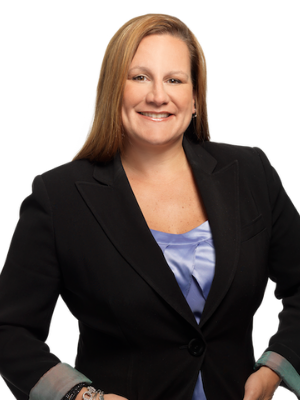
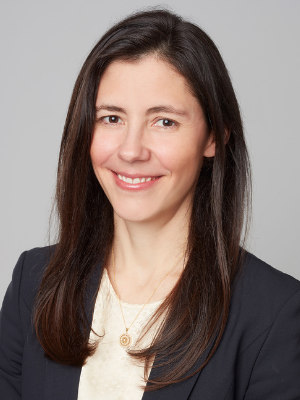
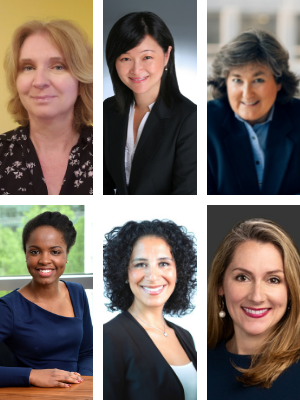
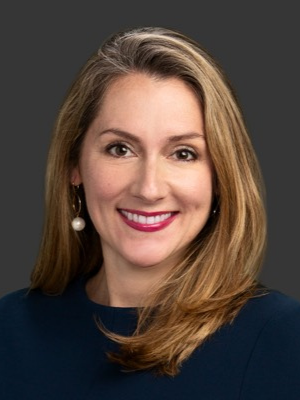

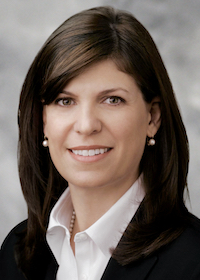 “Every individual in America — from a Rockefeller to a Jones — will face retirement,” says Barbara Reinhard. “At Voya, we can touch every American’s life, and it’s a powerful investment mission when you realize that the decisions we make will help someone realize their lifelong goals.”
“Every individual in America — from a Rockefeller to a Jones — will face retirement,” says Barbara Reinhard. “At Voya, we can touch every American’s life, and it’s a powerful investment mission when you realize that the decisions we make will help someone realize their lifelong goals.”